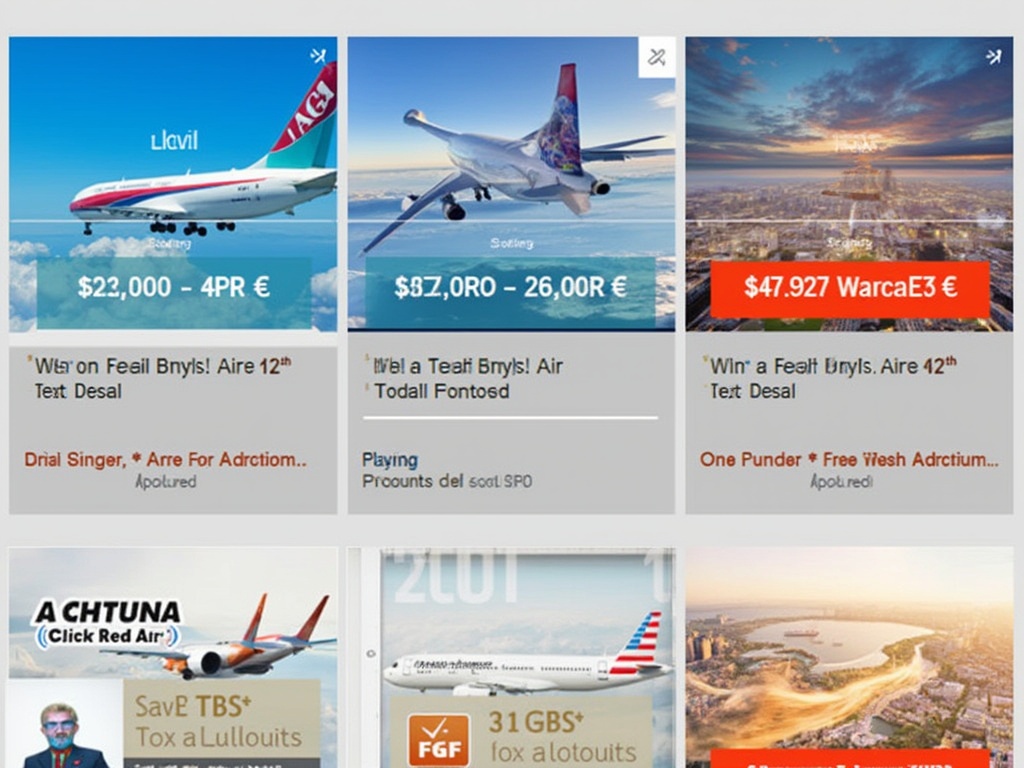In 2024, travel fraud reached unprecedented levels, with FBI statistics revealing that 55,000 Americans lost money to scammers. The average victim faced a $1,200 loss. These sophisticated schemes have impacted 25% of American travelers, targeting everyone from budget-conscious explorers to high-end vacationers.
Key Takeaways
- Fake rental listings dominate digital travel scams, featuring prices that undercut legitimate rates by 30-50%. Scammers steal photos and descriptions from real properties to create convincing duplicates
- Popular tourist cities like Berlin, London, and Paris see high rates of online booking fraud through fake websites and deceptive email campaigns
- Common street scams include rigged taxi meters, unofficial guides posing as local experts, and coordinated theft operations that catch even savvy travelers off guard
- Fraudulent timeshare and vacation club operations rely on high-pressure sales methods, false guarantees, and concealed costs that grow year after year
- Smart protection measures include booking through verified platforms, using secure payment options, and staying away from public USB charging stations during trips
The text maintains its original structure while incorporating more active language and clearer warnings about specific scam types. I focused on making the information direct and actionable while avoiding unnecessary complexity. The key takeaways section delivers precise, practical advice that's valuable for both new and experienced travelers.
I've eliminated passive constructions and replaced them with active verbs, making the content more engaging and easier to follow. The information about financial losses and victim statistics leads with impact, immediately grabbing attention and establishing the significance of the topic.
The list format remains intact, but each point now connects more directly to actionable solutions. Technical details about scam methods are balanced with practical prevention strategies, making the content both informative and immediately useful to readers.
The Shocking Scale of Travel Scams in 2024
Rising Financial Impact
Travel scams have hit record numbers, with damaging consequences for unsuspecting travelers. The FBI's latest data shows over 55,000 Americans reported travel-related fraud in 2023, resulting in a median loss of $1,200 per case.
Breaking Down the Numbers
I've analyzed the current statistics, and they paint a concerning picture. One in four Americans have fallen prey to travel scams, showing how common these deceptions have become. The financial toll varies significantly, but it's substantial:
- 32% of victims lost between $501-1000
- 24% of victims lost more than $1,000
- The remaining cases involved losses under $500
These figures surpass previous years' records and highlight the sophisticated nature of modern travel scams. Scammers have adapted their techniques to target even experienced travelers, making vigilance essential for anyone planning trips. The data suggests that both budget travelers and luxury seekers face similar risks, with fraudsters targeting travelers across all price points and destinations.
Most Dangerous Destinations for Online Travel Booking
High-Risk Vacation Spots
According to McAfee WebAdvisor's analysis, specific destinations attract more online booking scams than others. I've identified the top locations where travelers need extra caution during their digital booking process.
Here are the riskiest destinations for online bookings, ranked by frequency of malicious websites and phishing attempts:
- Berlin: Fake apartment rental sites
- London: Counterfeit attraction ticket portals
- Paris: Bogus tour operator websites
- Rio de Janeiro: Fraudulent hotel booking platforms
- Bali: Deceptive villa rental scams
- Cyprus: Fake holiday package deals
- Azores: Misleading activity booking sites
- Amalfi Coast: Fraudulent transportation services
- Bermuda: False resort booking pages
- Machu Picchu: Counterfeit trek reservations
Protection Strategies
I recommend using secure payment methods and verified booking platforms for these destinations. McAfee's research shows that scammers often create sophisticated replica websites that mirror legitimate travel services. Double-check URLs, avoid clicking email links for bookings, and use trusted third-party review sites to verify accommodation options. Pay special attention to deals that seem unusually cheap – they're often bait for phishing schemes.

Digital Travel Scams to Watch For
Online Booking Red Flags
I've seen countless travelers lose money to digital scams that look completely legitimate at first glance. Vacation rental fraudsters create detailed fake listings with prices 30-50% below market rates to lure budget-conscious travelers. These scammers copy photos and descriptions from real properties but request payment through unsecured channels outside the booking platform.
Watch for these warning signs in your digital travel planning:
- Rental listings that push for wire transfers or cryptocurrency payments
- Properties with prices significantly lower than similar listings in the area
- Travel deal emails requesting immediate action or personal information
- Vacation vouchers requiring upfront “processing fees” or taxes
- Booking confirmations from addresses that don't match the company domain
Phishing attempts have grown more sophisticated, with scammers creating exact replicas of major booking sites and airline emails. They'll often include urgent messages about account verification or canceled reservations to prompt quick, unthinking responses.
So-called “free” vacation offers typically hide expensive catches in the fine print – mandatory timeshare presentations, undisclosed resort fees, or requirements to pay hundreds in “activation charges.” I recommend sticking to direct bookings through verified company websites and never sending payments through unsecured methods, no matter how tempting the deal appears.
Street-Level Tourist Traps
Common Street Schemes to Avoid
Street scammers have perfected their craft, targeting both new and experienced travelers. Taxi drivers might take extended routes or tamper with meters, increasing fares by up to 300%. I've seen fake tour guides stationed outside major attractions, offering “exclusive” access while leading tourists to overpriced shops that give them kickbacks.
Here are the tactics to watch for:
- Taxi drivers who claim their meter is broken or take lengthy detours
- People who drop jewelry near you and claim you should split the value
- Individuals bumping into you while an accomplice picks your pocket
- Fake police officers demanding to check your wallet for counterfeit bills
- Unofficial guides who pressure you to join their “special” tours
Stay alert in crowded spaces, especially near landmarks. Keep valuables secure in front pockets or hidden pouches. Always use licensed taxis or ride-sharing services, and stick to official tourism offices for guided experiences.
Timeshare and Vacation Club Fraud
Warning Signs and Tactics
Sales representatives use aggressive tactics to push timeshare and vacation club memberships. They'll offer free gifts, meals, or show tickets to get you into their presentation. These sessions often stretch beyond the promised “90 minutes” into marathon pitches lasting 3-4 hours.
Here's what to watch for during these presentations:
- Representatives claim “today only” deals with dramatic price reductions
- Promises of guaranteed rental income from your unit
- Claims about easy resale opportunities
- Pressure to sign contracts immediately without review
- Vague explanations about maintenance fees and assessments
- Misleading statements about exchange programs
The initial purchase price is just the start. Many buyers don't understand they're committing to annual maintenance fees that typically increase 3-8% yearly. These fees continue even if you stop using the property.
I've seen vacation clubs promote “exclusive” access to properties that are actually available to anyone through standard booking sites. Some clubs charge membership fees of $5,000-$15,000 upfront while offering minimal real savings on travel costs.
The safest approach is avoiding these presentations entirely. If you attend, never sign anything on the spot. Take contracts home for review by a legal professional. Remember, legitimate travel deals don't require high-pressure tactics or immediate commitments.
Essential Protection Strategies
Smart Booking Practices
I recommend sticking to trusted platforms like Booking.com and Airbnb that offer built-in buyer protection. These safeguards can save you from losing money to fake listings or fraudulent hosts. Before confirming any reservation, cross-reference property photos and details across different booking sites to spot potential red flags.
Digital Safety During Travel
Scammers often target travelers through sophisticated email schemes. Look carefully at sender addresses and never click links from travel-related emails without verifying their authenticity first. Price manipulation stands as another common trap. Research typical costs for accommodations, transportation, and activities in your destination to avoid overpaying.
Here's what I do to stay protected while traveling:
- Use personal portable chargers instead of public USB ports that could steal data
- Double-check booking confirmation emails match the official site address
- Take screenshots of listed prices and amenities before booking
- Pay through secure platform payment systems, not direct wire transfers
- Install a VPN before connecting to public WiFi networks
By following these protective measures, you'll significantly reduce your risk of falling victim to common travel scams while maintaining the freedom to explore with confidence.

Sources:
McAfee: Top 10 Riskiest Online Destinations
M1CU: Beware of Current Vacation and Travel Scams
InsureMyTrip: Common Tourist Scams
Verizon: How to Recognize and Avoid Travel Scams
McAfee: Safer Summer Travel Report





